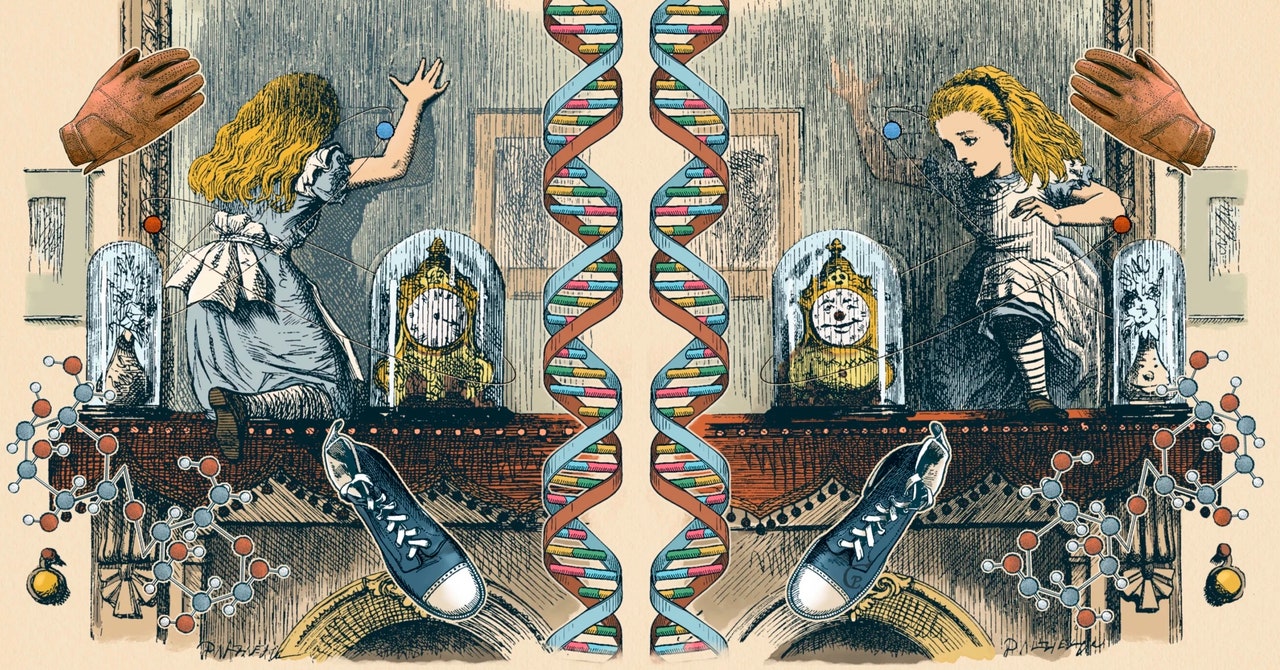Ever feel like parenting is aging you in ways no skincare routine can fix? Science might agree—and it turns out, your child’s gender could have something to do with it.
In a long-term study tracking more than 13,000 parents over nearly two decades, researchers uncovered a surprising link: raising sons is associated with a faster rate of cognitive decline compared to raising daughters. This pattern held true even after controlling for income, education, and health status. The more sons a parent had, the more their brain health seemed to take a hit.
It’s not about blame or guilt—it’s about understanding a subtle but consistent trend that might help explain why some parents feel mentally drained as the years go on. And no, it’s not just “boy moms” feeling the impact—dads aren’t off the hook either.
So what is it about raising boys that could be speeding up mental aging? And more importantly, what can parents do to protect their brain health over time? Let’s break down what the science says.
What the Science Is Saying
A large-scale study led by researchers from Columbia University and Charles University analyzed data from over 13,000 parents aged 50 and older, tracking their cognitive health for up to 18 years. What they found was consistent and statistically significant: parents with at least one son experienced a faster rate of cognitive decline than those who had only daughters. The more sons a parent had, the steeper the decline.
Cognitive aging in this study wasn’t based on vague self-reports or subjective impressions. Participants were given standardized brain function tests every two years, including word recall, serial subtraction, and mental agility tasks. These tests measured memory, attention, and mental processing speed—skills crucial for managing daily life as we age.

The results showed a clear trend:
- Having one son was linked to slightly faster decline.
- Two sons sped up the decline even more.
- Three or more sons correlated with the steepest cognitive decline among all groups.
And this wasn’t just a maternal issue. Fathers experienced similar effects. After adjusting for variables like number of children, income, marital status, and baseline health, the correlation between sons and faster brain aging persisted in both men and women.
Importantly, the study did not find that parents of sons started out with lower cognitive function. The divergence happened over time, which suggests that something about the long-term experience of parenting sons may contribute to accelerated aging of the brain.
How the Study Was Conducted

To understand whether sons really accelerate cognitive aging, researchers didn’t rely on short-term observations or small samples. Instead, they used data from the Health and Retirement Study (HRS)—a nationally representative, long-term study that tracks the health and aging of adults in the United States.
This particular analysis looked at 13,222 parents aged 50 and older. Researchers selected only those who had at least one child, to isolate the effects of parenting. Cognitive function was measured at least twice per participant, with some contributing data over nearly two decades.
Every two years, participants completed standardized cognitive tests designed to track changes over time. These included:
- Immediate and delayed word recall (short-term and working memory),
- Serial 7s subtraction (math-based working memory),
- Backward counting tasks (mental flexibility and attention).
Each test generated a score, and those were combined into a total cognitive score, with changes over time indicating the rate of cognitive aging.
The researchers didn’t stop at the numbers—they accounted for nearly every factor that could influence brain health. This included:
- Sociodemographic data (age, education, income, marital status),
- Health factors (heart disease, stroke, diabetes, depression, BMI),
- Family composition (number of children, sons, and daughters),
- Lifestyle indicators (smoking history, birthplace, parental education).
To rule out chance or confounding effects, the team ran multiple statistical models and sensitivity analyses. Even when adjusting for these variables—and even when removing participants with dementia—the link between having sons and faster cognitive decline remained consistent.
What also stood out: the association didn’t show up in the first few years of parenting. It emerged gradually over time, suggesting that long-term family dynamics—not just early stress or biological changes—may be driving the cognitive impact.
Why Sons Might Accelerate Cognitive Aging

The research doesn’t point to a single cause, but it does highlight a mix of social, behavioral, and biological factors that might explain why sons are linked to faster cognitive decline in parents.
1. Social and Emotional Dynamics
One of the most consistent explanations is the emotional labor involved in raising boys. Multiple studies show that sons tend to require more parental supervision, behavioral intervention, and conflict management than daughters—especially during childhood and adolescence. Boys, on average, engage in more risk-taking and physical activity, which can translate into more hospital visits, disciplinary actions, and general stress for parents.
That stress doesn’t always ease with time. Adult daughters are more likely than sons to provide emotional support and informal caregiving to aging parents. Sons, in contrast, are statistically less involved in long-term care. This emotional gap may leave parents of sons feeling more isolated or unsupported as they age—factors that are known to contribute to cognitive decline.
2. Parenting Stress Accumulates Over Time
Raising boys may not feel cognitively taxing in the moment, but the cumulative stress of constant vigilance, discipline, and decision-making can wear down mental resilience. Chronic stress affects the brain over time, especially in regions linked to memory and focus. In the long run, the mental load of parenting sons may simply add up in ways that subtly—but consistently—affect brain health.

3. Biological Theories (Still Under Debate)
Some researchers have explored biological explanations. One idea is the “expensive son hypothesis”—the theory that pregnancy and lactation with male offspring place greater physical demands on mothers than female pregnancies. Boys typically have higher birthweights and require more energy to carry and breastfeed, which could potentially deplete maternal health reserves over time.
There’s also discussion around microchimerism, where fetal cells from male offspring remain in the mother’s body—including her brain—long after pregnancy. While some studies suggest these cells may have protective effects, others argue that the biological toll of carrying male fetuses could contribute to long-term inflammation or cardiovascular strain, which are both associated with cognitive aging. However, these theories are still under investigation and are not the main drivers behind the study’s conclusions.
4. Not Just About Moms
Importantly, the study found no meaningful difference between mothers and fathers when it came to the rate of cognitive decline linked to sons. This suggests that the effect is likely driven more by long-term parenting demands and social stressors, rather than by pregnancy or hormonal factors alone.
Practical Tips to Support Brain Health as a Parent

Whether you’re raising sons, daughters, or both, parenting is a long-haul job that demands focus, flexibility, and resilience. The good news? You’re not powerless when it comes to protecting your cognitive health. Here are research-backed strategies that can help reduce stress, support brain function, and improve your overall well-being as a parent:
1. Prioritize Consistent, High-Quality Sleep
Sleep isn’t a luxury—it’s essential for brain maintenance. During deep sleep, the brain clears waste, consolidates memories, and restores cognitive function.
Try this: Set a consistent sleep schedule and limit screen time at least an hour before bed. If sleep is constantly disrupted, consider evaluating your nighttime environment or seeking help for underlying issues like insomnia or sleep apnea.
2. Stay Physically Active
Regular exercise improves blood flow to the brain, supports memory, and reduces the risk of dementia. It also helps manage stress and boost mood.
Aim for: At least 150 minutes of moderate aerobic activity per week—brisk walking, cycling, swimming, or anything that gets your heart rate up.
3. Keep Your Brain Engaged
Challenging your mind can help build cognitive reserve, which protects against decline.
Simple habits that help:
- Do puzzles or crosswords
- Read books outside your comfort zone
- Learn a new skill or language
- Use apps that support brain training

4. Build a Strong Social Network
Social interaction stimulates brain regions linked to memory and attention. Daughters may traditionally take on caregiver roles, but a wide support system—friends, siblings, community groups—can offer similar protection.
Stay connected: Schedule regular catch-ups, join parenting or hobby groups, or consider therapy or support circles if you’re feeling isolated.
5. Practice Stress Management Daily
Long-term stress, especially from parenting demands, can shrink areas of the brain involved in memory and decision-making.
Try small, daily practices:
- Deep breathing or short mindfulness sessions
- Brief walks alone
- Journaling your thoughts or frustrations
- Saying “no” when you need to
6. Set Boundaries and Share the Load
If parenting feels like a one-person operation, it’s time to delegate. Co-parents, family, and even older kids can share responsibilities.
Step to take now: Make a list of what you do daily. Identify tasks you can outsource, delegate, or drop altogether.
7. Check In on Your Health Regularly
Conditions like high blood pressure, diabetes, and depression are linked to cognitive decline.
Be proactive: Get routine check-ups, manage medications, and don’t ignore changes in mood, energy, or memory.
Awareness Without Alarm
Raising sons doesn’t doom you to memory loss or accelerated aging. What the research tells us is not a warning—it’s a heads-up.
The connection between having sons and faster cognitive decline is a trend seen across thousands of people, not a sentence handed down to individual parents. It doesn’t mean your sons are a liability or that your daughters are a guarantee of smoother aging. These are averages, not absolutes.
What is clear is that the day-to-day demands of parenting—especially when they stack up without enough support or rest—can wear on the mind over time. And sons, based on consistent behavioral patterns and social roles, may bring different long-term challenges than daughters do. Recognizing that is not blaming—it’s preparing.
The point of this research isn’t to make parents anxious. It’s to help them act with intention. If you’re raising boys, you may need to be more deliberate about protecting your mental bandwidth. That means setting boundaries, taking breaks, asking for help, and investing in your own health as seriously as you invest in your children’s.
Bottom line: knowledge is a tool, not a threat. When you understand the load you’re carrying, you’re in a better position to balance it. That’s not fear—that’s power.











Leave a Reply